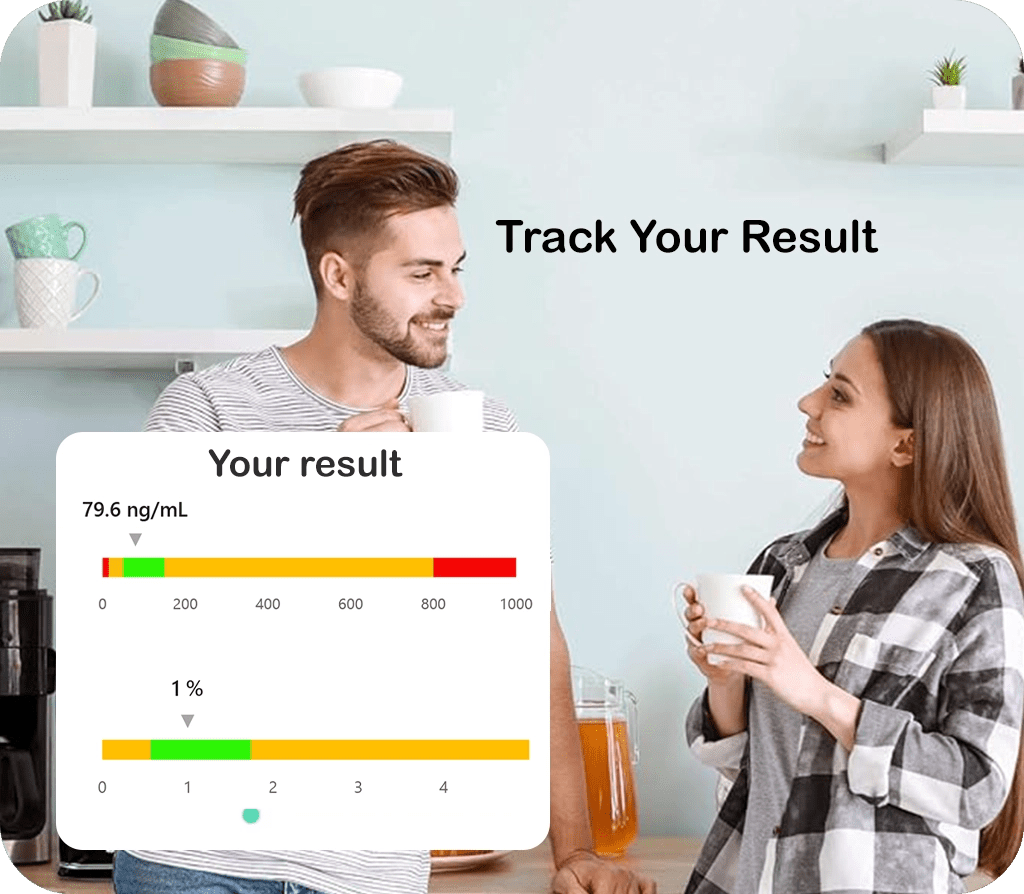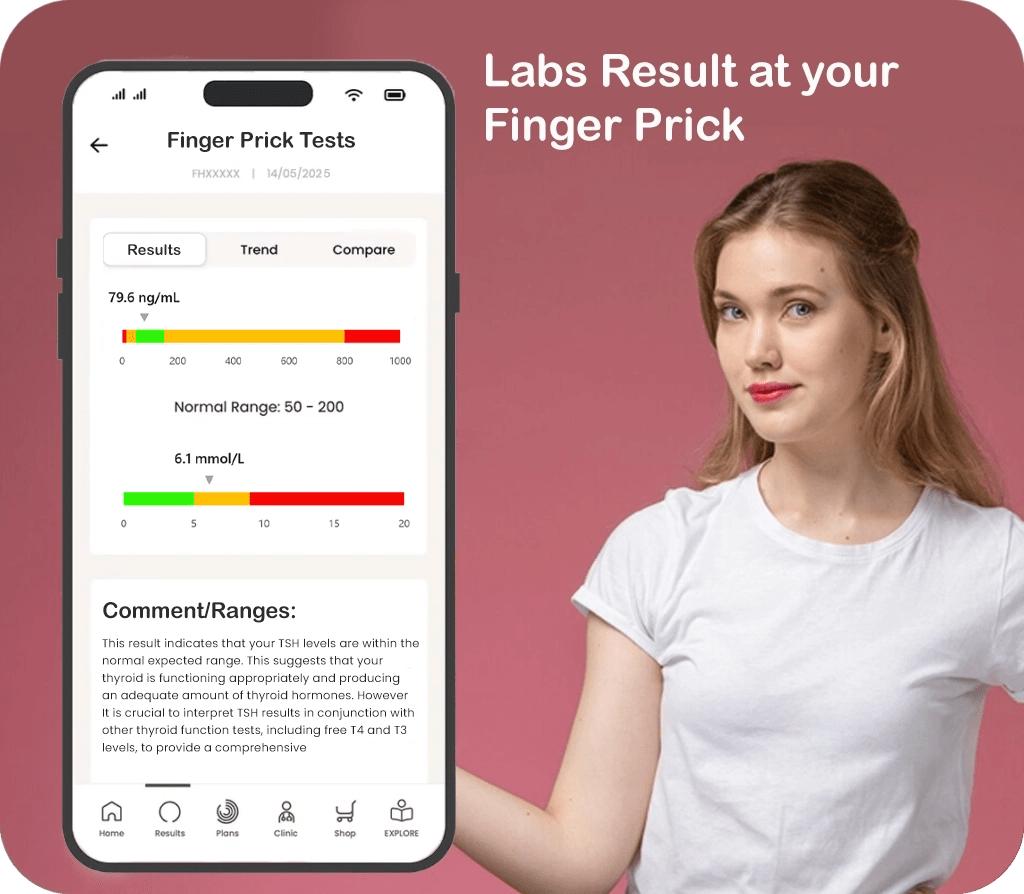
- FSH & LH: Regulate ovulation; abnormal LH:FSH ratios may signal PCOS
- Testosterone: Elevated levels can lead to acne, hair growth, or hair thinning




Free T4: Evaluates thyroid activity, which can influence cycle regularity and metabolism
HbA1c: Indicates how well your body handles glucose; insulin resistance is common in PCOS
This combination of markers helps uncover:









